Peer Perspectives: The Role of Youth Advisor Investigators in School Mental Health Research
Published: 6 June 2024
Discover the benefits of working with and involving young people in research. The SOCITS project team share their experience of working with Youth Advisor Investigators (YAIs) in their study.
Welcome to the SOCITS blog, where we share our experiences of working with and involving young people as Youth Advisor Investigators (YAIs) in our study exploring how schools, their surroundings, buildings, and social interactions affect young people's mental health.
Here, we will explore why we felt involving young people as collaborators was important, why they themselves wanted to get involved, some of the challenges we have faced as a research team, but more importantly how our young people have challenged our thinking and influenced the study. Our blogs will be written collaboratively, including members of the research team and our YAIs.
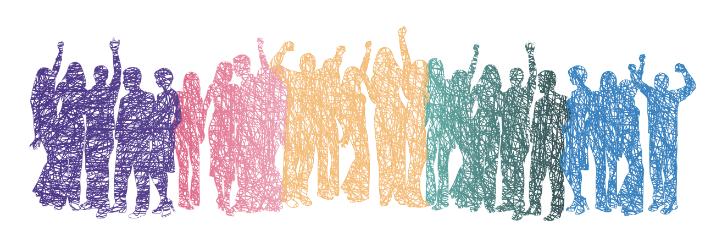
Our team
Claire is a Research Associate at the MRC/CSO Social and Public Health Sciences Unit in the School of Health and Wellbeing at the University of Glasgow.
Chris is Citizenship and Participation Officer with the Mental Health Foundation, bringing his experiences of involving people in research to the project to support our Youth Advisor Investigators.
The YAIs who contributed to this blog are:
Mia: Mia has just finished high school and is about to attend Glasgow University to study public policy and international relations. She loves working in different mental health charities and works with policy makers to create effective change across the UK. In her spare time she enjoys listening to music and cooking.
Rechel: Rechel has just finished high school and is about to go to Dundee University to do the Gateway to Medicine. Rechel loves learning new things especially about the human body and the universe. In her spare time she plays games and goes out to new places with her friends and she also volunteers.
About SOCITS
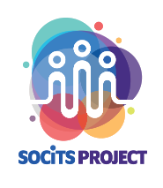
SOCITS stands for SOCial, sITuational Systems approach and by that we mean that we are interested in the complex network of relationships and situations that exist between individuals, groups, and institutions and want to know more about how they impact on young people's mental health. We are interested in different spaces around the school, and we are interested in how young people use these spaces, the interactions they have in these spaces, and the impact this can have on factors like stress and loneliness which are strongly linked to our mental health.
The need to involve young people
Health and Social research has seen a shift towards inclusivity and empowerment, where the voices of those directly affected by the research topic are not just heard but also actively involved in shaping the research project itself.
From the start we wanted to have young people involved. We believed strongly that it was important to involve young people in the design of research into something that was such a big part of their lives. Initially we planned on a youth advisory group, but when we thought this through, we raised our aspirations — why just have young people advising when young people have so much more to offer? Why can’t young people be collaborators influencing and carrying out the research themselves?

Early on we made the decision to move from a limited youth advisory group to a peer research model where young people would not only advise, but would be investigators, carrying out interviews themselves with other young people in schools.
This was not an arbitrary decision to sound more inclusive. Rather, we realised that if we wanted an authentic insight into the lived experiences of adolescents and their experiences in school, we needed peer researchers, and young people’s input. There were concerns that there would be a response bias if interviewed by adults, with young people feeling uncomfortable being honest about their experiences. In SOCITS, we needed a nuanced approach — one that goes beyond traditional research methodologies. This would only happen through meaningful face-to-face conversations with interviewers who they saw as peers.
The research team considered the following four factors crucial to the success of the project, with further explanation below.
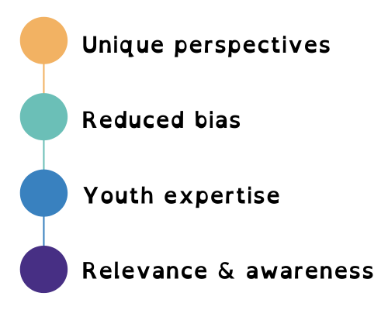
Unique perspectives: Recognising the unique perspective and expertise that young individuals bring to the table, the research team embraced the idea of young peer researchers as integral contributors to the study. We therefore recruited and trained a team of Youth Advisor Investigators (YAIs).
Reduced bias: One of the primary motivations behind involving young people as researchers was the belief that their presence would foster a more open and honest dialogue among adolescent participants. Young people would likely be more comfortable confiding in their peers, without the pressure to provide socially desirable responses, or what they felt were the ‘right’ answers, rather than honest ones. This, in turn, promised to yield richer and more authentic data.
Youth expertise: Youth Advisor Investigators offer a perspective that traditional researchers simply cannot replicate. Their lived experiences and intimate understanding of youth culture offer invaluable insights that complement and enrich the research process. In essence, they bring a depth of knowledge that goes beyond academic credentials.
Relevance and awareness: Adolescents navigate a complex social landscape, one that is constantly evolving and closely linked to their school environment. Because they are young people themselves, peer researchers have a greater awareness of these dynamics, enabling them to engage with participants on a level that is both relevant and contextually sensitive.
These are some of the reasons why we as researchers wanted to include young people. Now let’s hear from our YAIs on why they wanted to be involved...
Getting involved
Our Youth Advisor Investigators (YAIs) shared various reasons for wanting to be involved in the SOCITS project. One of our YAIs mentioned:
"At first, I didn't know what I was getting myself into... What made me stay was the environment and the new experience, it sounded different to anything I did before, and I wanted to give it a try."
Another YAI was initially curious, noting:
"... it was an opportunity to investigate things like stress and loneliness within school which I thought could be really beneficial for young people in general if the experiences I had seen at my school were anything to go by."
After learning a little more about the project, the same YAI added:
"I still wanted to get involved [...] because it was a unique method of gathering information and I had never really done anything like it before."
These reflections highlight the mix of curiosity, and wanting to contribute meaningfully to research that drew YAIs to contribute to the SOCITS project.
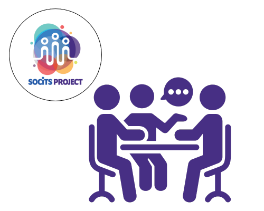
Anxieties about being involved
Learning a new skill and joining a new team can always provoke a little anxiety, and our YAIs did have anxieties about taking part, as outlined by some of their reflections below.
"My main anxiety of doing the interview was not doing it right, I was scared that I will forget things or not be able to get the teenager to talk to me and to have a smooth and nice conversation."
"To be honest, I had a bit of anxiety about talking to new people and doing new things that wasn't through school but was still a professional setting."
"I was a bit nervous about how I would be able to help while managing my Tourette's in that setting", one YAI shared.
Our YAIs did spectacularly in overcoming these anxieties to conduct high-quality interviews that were integral to the research project. We aimed to provide a supportive environment that was encouraging and beneficial to YAIs.
Learning new skills
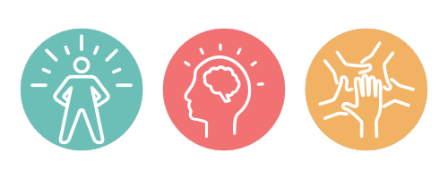
Our YAIs felt that they had learned some practical and personal skills that were beneficial through working on the SOCITS project. Here are some comments they made about the learning experience:
"I feel like I learned a lot about the process of doing a project as well as learning from the information gathered."
"I learned there are loads of similar, if not the same, problems and patterns that happen throughout schools and that there can be a significant difference between what a young person and what an adult interprets from things said."
"I also felt I personally learned to have more confidence in this type of setting and how to work with others in a way that is unlike school."
"I learned how making mistakes is not something bad and that if you are not sure about something just continue because you have nothing to lose. I also learned ways to improve important skills."
These reflections underscore the personal and professional development experienced by our YAIs, enhancing their confidence, collaborative abilities, and understanding of the research process.
Why involving young people matters
YAIs also emphasised the importance of involving young people in research, particularly studies focused on young people. Here are some insights they had about young people's contribution to research:
"I think it is essential to have young people involved in any study involving young people as they understand each other better, and they have perspectives and views that adults might not have, as well as being able to provide more information because they themselves are young people."
"It's surprising how adults might see or hear things and interpret them to mean something different, so it's important to have young people to almost translate sometimes."
"I think it's also important to have young people present in research to point out and question anomalies or give background information that can help add context to conclusions being drawn."
These insights underscore the invaluable contributions that young people make to research, offering authentic perspectives, improving interpretation, and providing essential context.
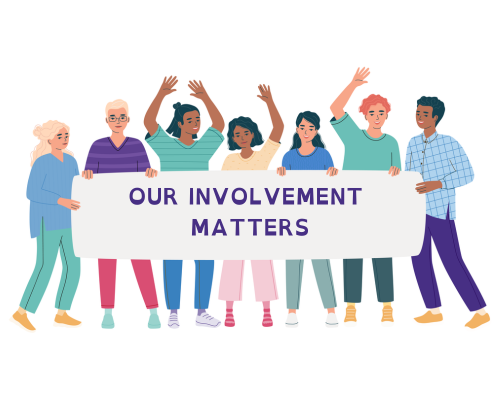
Closing thoughts
Involving young people as Youth Advisor Investigators in our research has profoundly shaped the SOCITS project. Their unique perspectives, enthusiasm, and openness have improved our understanding and provided additional depth that traditional research methodologies often lack. By engaging young people not just as participants but as active collaborators, we have gained insights into our research that we may not have gleaned otherwise.
As we continue the SOCITS project, we remain committed to including our YAIs and recognise that the voices of young people are not just valuable but essential in shaping meaningful research outcomes. We look forward to sharing more insights and stories from our YAIs in future blogs, highlighting the ongoing impact of their involvement.
Find out more about The SOCITS project
First published: 6 June 2024

